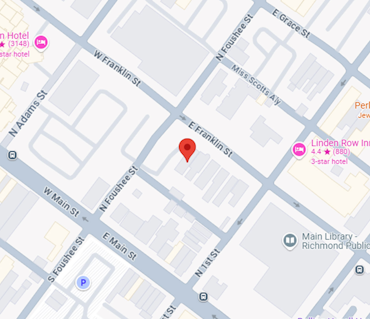As defined by the Commonwealth of Virginia, domestic violence is an assault and battery against a family or household member. A family or household member is defined as a someone that lives with the accused, a spouse, or someone the accused shares children with. An assault and battery against a family or household member is a Class I misdemeanor. However, upon conviction of a third count of assault and battery on a family member, the charge becomes a felony. This felony charge would carry up to five years of incarceration time.
Are There Common Situations That Lead To Domestic Violence Arrests?
Any unwanted touching of a person is an assault and battery. As a note, sometimes, false charges are filed for revenge or to gain a protective order to get the upper hand in other related family matter cases.
Usually, domestic violence is the result of a victim trying to leave the household and the perpetrator using physical force to restrain them or prevent them from leaving. A victim may then want to call the police in this situation. When the police arrive, the victim may say that they were shoved or otherwise on the receiving end of unwanted physical touch. In this case, that situation would be considered assault and battery.
There are also many abduction charges because individuals might threaten victims saying they are not allowed to leave the property. If filed as such, this common scenario could count as an abduction charge.
If The Accuser Changes Their Story, Will My Assault Case Go Away?
Not necessarily. Once the police are called and the charges are filed, the case then belongs to the Commonwealth, and the alleged victim is now the witness. Now, if the victim gets to court and then refuses to testify, the Commonwealth will no longer have a case, and charges will probably be dropped.
However, if a victim has appeared in court several times or there is a clear case of domestic violence, alleged victims are not given the option to remain silent and must testify.
If My Accuser Is Attempting To Contact Me, Is There Ever A Situation Where I Should Talk To Them?
It is not advisable to stay in communication with your accuser. If someone has accused you of a crime that you did not commit, they will likely do so once again.
Oftentimes protective orders do not allow for contact, but sometimes the individual who took out the protective order will call the other person. This does not mean contact is sanctioned by the court. It is important to note that a court of law is the only entity that may grant or remove a protective order. Therefore, if either party wants to be in communication with the other, the protective order must first be rescinded by the court.
How Does A Protective Order Work If There Are Children?
If there are children, a protective order will outline the guidelines for communication about the children. It may order that the parents use a third party to communicate. It may also prohibit contact except for text messages or emails relating to the children.
What Are The Consequences Of Having A Domestic Violence Assault Or Domestic Violence Charge On Your Permanent Record?
Anyone convicted of a domestic violence charge is not permitted to own a firearm per federal government regulations.
If any job requires security clearances, a person with a domestic violence charge will not be eligible.
Are There Good Defenses To Use? Is Self-Defense A Valid Defense In A Domestic Violence Case?
There are various potential defenses to use in a domestic violence case. Mutual combat, which means the incident was a reciprocal fight, would constitute that the incident was not simply a one-sided assault. A more common defense is providing video evidence that the incident did not happen as described or did not happen at all. Occasionally, it does turn out that someone lied, and a domestic violence charge was issued on false claims.
For more information on Domestic Violence Cases In Virginia, an initial consultation is your next best step. Get the information and legal answers you are seeking by calling (804) 207-9381 today.

When Everything Is On The Line, Call Us at
(804) 376-9309


